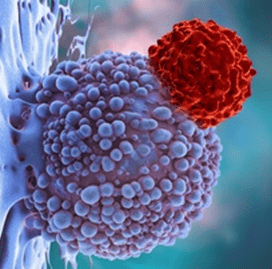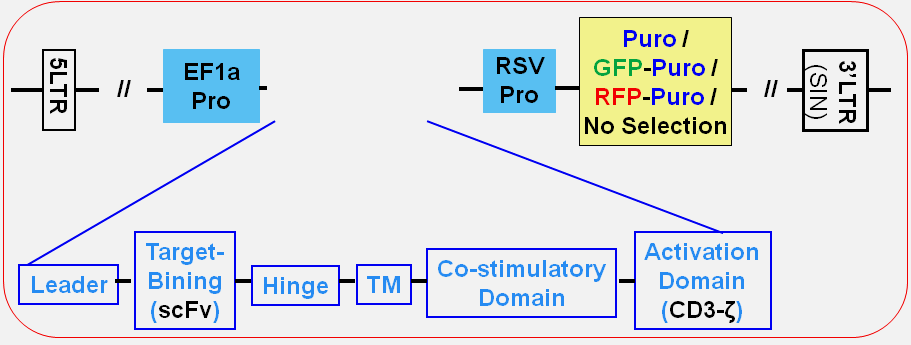CAR-T Lentivirus
 Note: All products and services are For Research Use Only and CANNOT be used in the treatment or diagnosis of disease.
Note: All products and services are For Research Use Only and CANNOT be used in the treatment or diagnosis of disease.
1. Understanding CAR-T:
Chimeric Antigen Receptors (CARs) are used to modify T cells, enabling them to produce a unique structure on their surface. This structure is composed of two parts: the antigen-binding and the T cell activation components.
The antigen-binding component, similar to an antibody, targets a specific antigen on the surface of a tumor. The antigen-binding moieties are typically derived from single-chain variable fragments (scFvs) of antibodies (for instance, those targeting a tumor surface antigen), Fab segments, or natural ligands that bind to their cognate receptor.
The activation component is made up of a chimeric molecule activation domain (found in 1st generation CARs), or a fusion containing both activating and co-stimulatory properties (found in 2nd generation CARs). The 2nd-generation CARs include the CD3-ζ chain and the cytoplasmic domain of a co-stimulatory receptor such as CD28, 4-1BB, CD80, or CD40L. The so-called 3rd-generation of CARs incorporate two co-stimulatory domains along with an activation domain in their cytoplasmic domain.
CAR-modified T cells are tumor-targeted T cells that have been enhanced for expansion and persistence within the tumor microenvironment, thus rapidly evolving as a potential cancer immunotherapy. The expression of cytokines in CAR-T cells can further modify the tumor microenvironment, greatly enhancing this approach. For instance, CD19-targeted, CAR-modified T cells expressing IL-12 have shown greater efficacy than CAR-modified T cells alone.
2. Gentarget’s CAR lentivirus Structure

Significant strides have been made in T cell therapies targeting well-characterized tumor antigens, including CD19 / CD20, CD22, Her2, BCMA HLA-A2 TGFβ specific-CAR. Gentarget has developed the CAR-T products for those tumor antigens, carrying different fluorescent or/and antibiotic selection marker. See our Lentivector map scheme above.
See products listed below, or click CAR-T Lentivirus Manual, and click Anti-CD19 CAR-T Manual to see all products. Please also look at our TCR Lentivirus page.
We also provide services to generate your desired CAR construct / lentivirus. Please contact us for service inquiries.